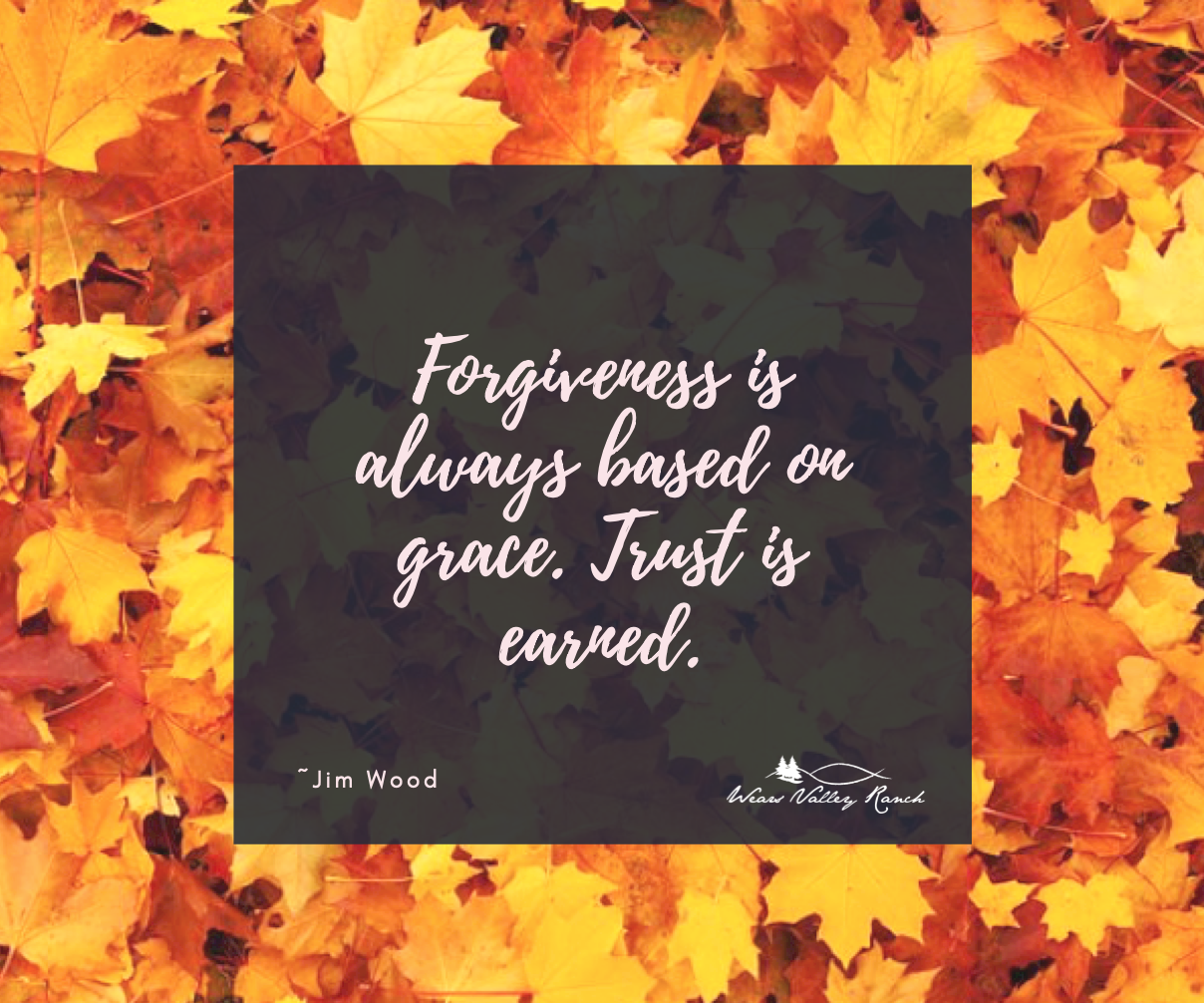Forgiveness and Trust, part 5
Alexander the coppersmith did great harm to me. The Lord will repay him according to his works. Watch out for him yourself because he strongly opposed our words.
2 Timothy 4:14-15
Many deceivers have gone out into the world; they do not confess the coming of Jesus Christ in the flesh. This is the deceiver and the antichrist. Watch yourselves so that you don’t lose what we have worked for, but that you may receive a full reward. Anyone who does not remain in Christ’s teaching but goes beyond it does not have God. The one who remains in that teaching, this one has both the Father and the Son. If anyone comes to you and does not bring this teaching, do not receive him into your home, and do not greet him; for the one who greets him shares in his evil works.
2 John 7-11
Trust is a vital component in a healthy relationship. The marriage relationship is unique and must be exclusive in order for trust to develop and endure. But, many couples have trouble distinguishing between forgiveness and trust.
Mrs. Billy Graham often remarked, “A good marriage requires the union of two good forgivers.” Unfortunately, many people are afraid to forgive because they think they’ll be hurt again and again. I am convinced that the most common barrier to forgiveness is the failure to recognize the difference between forgiveness and trust.
Forgiveness is always based on grace. Trust is earned.
Forgiveness must be given freely, and for followers of Christ, it is not optional. We must learn to forgive unconditionally because of the grace God has shown toward us. He commands us to forgive as we have been forgiven.
Trust, however, is not automatic. Trust is not given freely. Trust is earned. While God commands us to forgive, He does not command us to trust. Forgiveness and trust are both vitally important to a healthy marriage relationship, but knowing the difference between forgiveness and trust is also vital. In fact, understanding this difference is important in all of our relationships.
While trust does not automatically follow forgiveness, forgiveness nearly always precedes trust. Forgiveness means letting go of bitterness and giving up my “right” to repay another person for their failures. When I forgive someone, I stop holding their past against them as an excuse for not treating them with love. Love is not primarily how I feel. Rather, love is how I behave. I may or may not feel loving, but I need to behave in a loving way.
This is not a call to hypocrisy. It is not saying we should pretend to love. It is saying God wants to live His life through me, and He wants to love through me. I must depend on His Holy Spirit and follow the teaching of scripture, so that I will exercise self-control in my behavior, rather than responding to people according to my feelings at any given moment.
The Bible leaves me absolutely no choice about loving and forgiving my spouse. I can’t enter the marriage relationship and see whether or not my spouse measures up. “If she does, I’ll love her. If she doesn’t, I’ll divorce her and get a new spouse.” The Bible doesn’t give me this option. In fact, the Bible doesn’t even give me an option about loving my neighbor. The Bible leaves me no option, even about loving my enemy. Love is not an option, and it’s not something people earn.
In order to love I must forgive. Forgiveness means I stop holding a wrong someone has done to me as an excuse for not loving them. No matter what they’ve done to me, I let go of the offense and treat them with love. I want the best for them.
A dear friend, now in heaven, grew up with a violent alcoholic father. More than once, he risked his life to protect his mother from his father’s rage. As a child, he had to flee the house on several occasions in order to save his own life as his father shot at him with a gun. As a teen, he was filled with bitterness and anger. At a Christian boarding school in Mississippi, he met Jesus and his life was changed. He later attended Columbia Bible College in South Carolina. As he matured in Christ, he developed an increasingly strong desire to share the gospel with his father.
Returning to his hometown as a grown young man, he met his dad and shared with him the good news of God’s amazing grace. His father trusted Christ and a new relationship with his son was born. Then, the unthinkable happened. An old drinking buddy murdered his dad. An arrest was quickly made and the bereaved son went to the local jail and asked to see his father’s killer. The Sheriff said, “I’m not sure that’s such a good idea.”
The young man replied, “I really need to see him.”
“Okay,” said the Sheriff. “I promise not to hear a thing.”
But the young man had not come to do harm. Instead, he led his father’s killer to Christ. This is what the gospel is all about. Forgiveness is based on grace! When we were God’s enemies, He loved us. Now we are to be channels of His love, even to our enemies.
The scriptures don’t tell me I must trust my enemies. I am not required to trust those who have betrayed my trust. The Bible does not say I should fail to learn from bad experiences when people are dishonest with me. In fact, 2 Timothy 4:14-15 and 2 John 7-11 are just two examples of the many places in scripture where believers are told to be on their guard against those who should not be trusted.
Let me illustrate the difference between forgiveness and trust very graphically. If a person broke into my home and molested one of my children, scripture commands me to forgive that person, but I would be an irresponsible fool and a sorry excuse for a husband and father if I invited that person back over to the house to babysit my children. I need to forgive that person. And, while I’m not commanded to feel love for them, I must behave in love toward them. However, I would be irresponsible to ever trust that person.
You can forgive somebody and, at the same time, work diligently to make sure they cannot repeat the offense. Child molesters should be sent to a place where they will never have the opportunity to molest another child. Unless our government decides to start putting convicted molesters in the cemetery, they should be imprisoned for life. They should not be allowed to victimize other children.
I can have forgiveness in my heart while seeking to protect the molester and his possible victims from his evil behavior. It is not loving to allow people to continue in uncontrolled harmful behavior.
Forgiveness is always only based on grace. Trust is earned.
Featured Resource:



